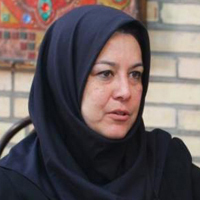Behavioral Changes in the Community Following COVID-19 Pandemics; A Conceptual Model Derived from a Grounded Theory Study in Iran
COVID-19 epidemic in Iran has imposed a heavy social, economic, political, and psychosocial burden and caused devastating social problems. On the other hand, it has also led to promising social cohesion. This study aimed to explore the community-wide changes following the COVID-19 pandemic and to understand how these changes may affect the Iranian community.
This qualitative study used the grounded theory approach and conducted from May 2020 to March 2021 at Shiraz University of Medical Sciences, Shiraz, Iran. Adopting a purposive sampling approach, 15 faculty members in different fields participated in this study, and 17 interviews were performed.
This study indicated that the core phenomenon in the social change process was “struggling for survival and livelihood”. Therefore, people tried to identify and choose strategies to deal with or repel COVID-19 disease as a life-threatening situation. A set of contextual factors influenced their choice. The media and the performance of organizations as intervening conditions also played an important role in this process. Finally, this complex process led to constructive and destructive outcomes in society.
The COVID-19 epidemic caused various multifaceted social changes in the Iranian community. Some social consequences were constructive and contributed to community development, while others jeopardized community development goals. Therefore, the paradigm model developed in this study can help policymakers and social planners develop programs to promote community health.
-
A sociological analysis on life experiences of infertile women being treated through modern methods in a pro-natalism environment
Narges Pirnia, *, Mohammad Jalal Abbasi-Shavazi
Sociological Studies of Youth Journal, Spring 2023 -
The Relationship between Reflexivity Gender Identity and Women's Fertility: A Study among Married Women in Urban Areas of Kashan County, Iran
Ahmad Dorahaki *, Masoumeh Akhwan Armaki,
Journal of Population Association of Iran,



